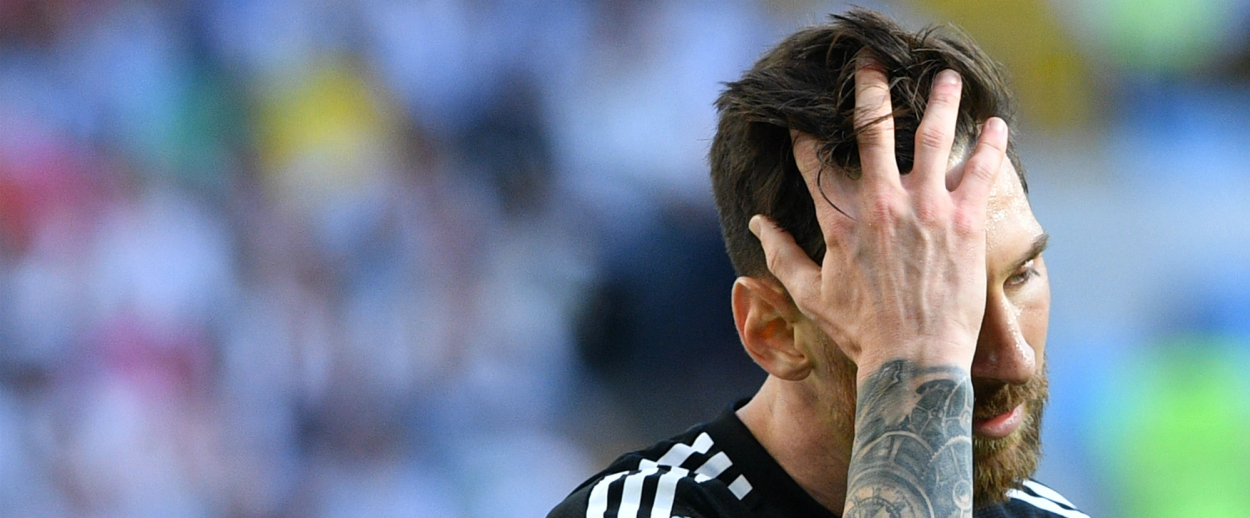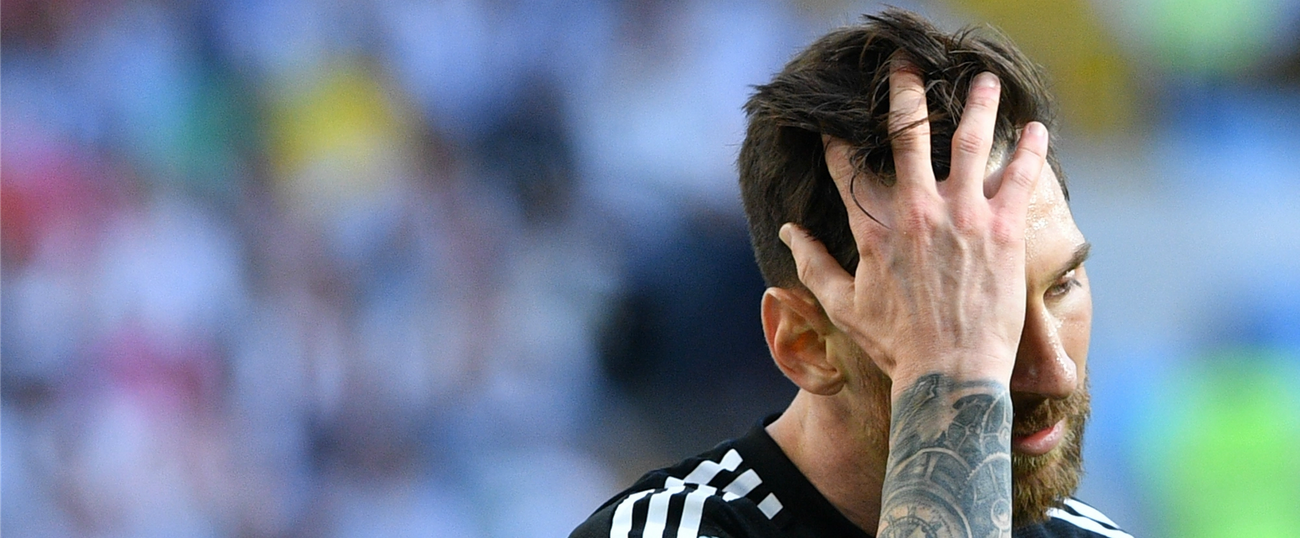It’s the Jerusalem Curse, Lionel Messi
Sport is ultimately about character, and the Argentine superstar is showing his deficiencies on and off the pitch




There’s nothing sillier than making predictions about the World Cup barely three days into the tournament, especially when the subject of said prognostications happens to be one of the most celebrated soccer players on earth. But here I go: Judging by his lackluster performance against Iceland on Saturday, it seems that Lionel Messi has been struck with the Jerusalem Curse.
Not that Messi, as Israel’s defense minister, Avigdor Lieberman, preposterously argued, needed that final friendly game with Israel last week. But by succumbing to Palestinian threats of violence—FIFA, soccer’s governing body, condemned Jibril Rajoub, the Palestinian soccer federation boss, for calling on fans to burn Messi jerseys—Messi showed his true colors, revealing himself to be the sort of weak, indecisive man who cowers at the first hint of adversity rather than stand on principle and commit himself to doing what’s right.
You may find such talk ridiculous. You may argue that a footballer’s job is strictly to pass and shoot, not to take stands on matters of global diplomacy. And you’d be right, but only to a point: Soccer, like all sports, is not only about skill but about character. It’s about giving your all, win or lose, to the game, as LeBron James, for example, did in his ultimately doomed effort to wrestle the NBA championship from the Golden State Warriors. Anyone who saw James fight fiercely and relentlessly for every point and every rebound could tell right away that they were looking at one of the all-time greats.
No one who didn’t already know Messi’s reputation would’ve guessed that the diminutive dude was a champion. His performance on the pitch was just like his politics: Wishy-washy, susceptible to pressure, and sort of despicable. Not only did he fail to do anything of any real merit—even great athletes have terrible days—but when, in the 64th minute, he was awarded with a penalty kick, he progressed nonchalantly and delivered the kind of weak and indecisive tap that any budding youth league coach would’ve chided his prepubescent charge for taking. At the World Cup, you show up. Messi never did.
It shouldn’t come as much of a surprise. A star of Messi’s caliber—he earns, according to reports, more than $111 million per year, making him the world’s most richly rewarded soccer star—could’ve afforded to take a stand. When Palestinian thugs threatened to kill him if he played in Israel, he could’ve come out and said that if there’s any point to being fantastically wealthy, it’s the ability to do whatever you darn please, and that he’ll come to Jerusalem accompanied by a small private army to show the world that sports, the very pursuit that made him rich and famous, should always triumph over violence. Or he could’ve come out and said, unequivocally, that he’s happy to cancel the match against Israel because he supports the Palestinian cause. Both would’ve been perfectly acceptable positions; but Messi took neither, bowing to the two-bit bullies who flexed their muscles and costing his country’s soccer federation a princely sum in penalty fees for the cancellation. (The Argentines, according to Israeli sources, will receive the money to pay Israel back from Qatar.) The same sort of spinelessness was in evidence in Spartak Stadium: Unlike Portugal’s Cristiano Ronaldo, who, a day earlier, forced Spain into a 3-3 draw more or less single-handedly with a splendid hat trick and a spirit that never wavered, Messi meandered, fumbled, slouched, and lost what should’ve been an easy victory for a team that good with a captain of this caliber.
Maybe he’ll turn it all around. Maybe he’ll be the one grinning ear to ear on July 15th in Moscow, lifting up the golden trophy and winning the only feather he’s yet to put in his storied cap, that of a World Cup championship. But judging by his performance this past week, it’s unlikely. Whatever happens, one thing’s clear: Messi may end up a winner, but he’ll never be a champion.
Liel Leibovitz is editor-at-large for Tablet Magazine and a host of its weekly culture podcast Unorthodox and daily Talmud podcast Take One. He is the editor of Zionism: The Tablet Guide.